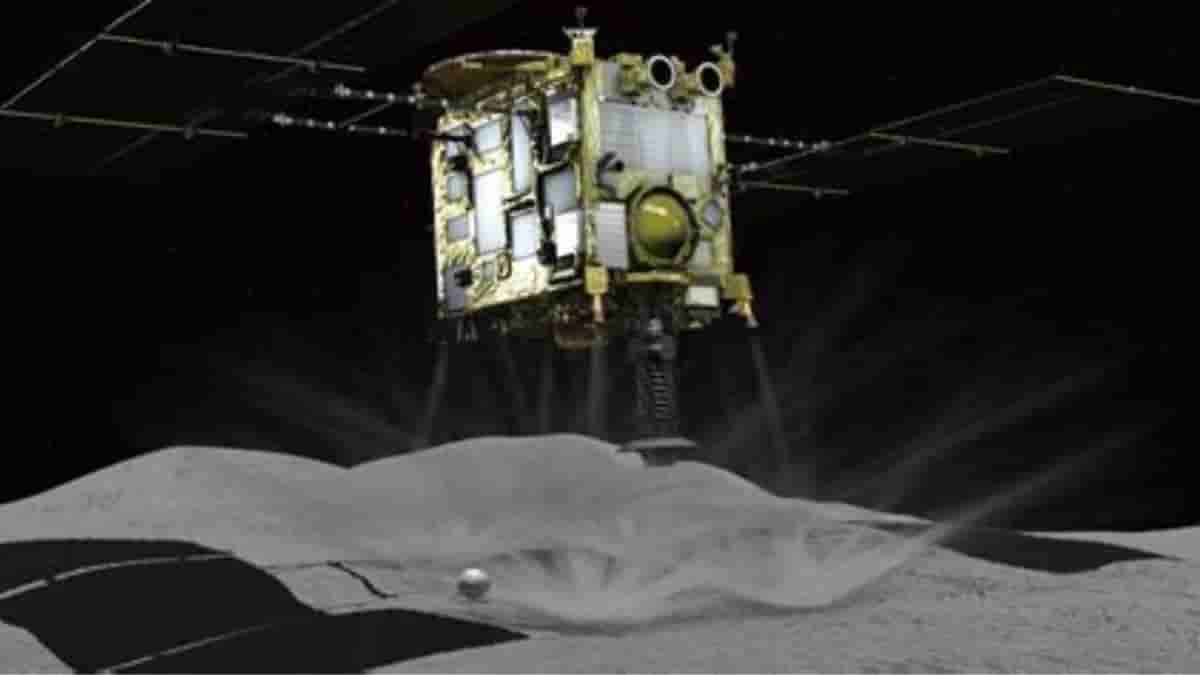The Hayabusa2 spacecraft from Japan has found water in an Asteroid

Hayabusa-2 was launched in 2014 to reach Ryugu, which is around 300 million kilometers away.
The roughly refrigerator-sized Hayabusa-2 spacecraft reportedly landed on the diamond-shaped asteroid Ryugu, which was given the name Ryugu after the Japanese term for “dragon palace,” according to Phys.org.
The probe impacted an “impactor” into the surface, collecting 5.4 grams (0.2 ounces) of rocks and dust. The discovery of water in an asteroid sample for the first time sheds light on the possible origins of the oceans on Earth. The Hayabusa2 spacecraft from Japan made the discovery.
The Japan Aerospace Exploration Agency, Tohoku University, and other research teams published their findings in the journal Science on Thursday. Scientists studied the Ryugu asteroid samples that the Hayabusa2 sent.
The minuscule amount of water was discovered in a dip in an iron sulfide crystal that was several microns wide. It is believed to have existed roughly 4.6 billion years ago, not long after the solar system first formed. On Ryugu, though, the water appears to be liquid rather than frozen. Salts, organic debris, and carbon dioxide were all present in the carbonated water.
Despite the fact that water had already been discovered in a meteorite, it was still feasible for it to have originated on Earth. A prior study of a Ryugu sample had suggested the presence of water, but this was not confirmed until water and minerals began to interact chemically.
Tomoki Nakamura, a professor of earth science at Tohoku University, made the observation that an asteroid that collides with the Earth and contains water also carries organic material. The origins of living things and the origins of the oceans are directly tied to this information.
The Ryugu samples are still being examined in Japan by eight research teams. It is predicted that more details about the makeup of organic matter, including the 23 amino acids that have already been discovered, will be found.


